Discover how a $100,000 FRAXA grant awarded to Cincinnati Children’s Hospital is advancing Fragile X research by simplifying EEG technology for home use, improving clinical trial accessibility and efficiency.
Read moreSearch Results
Recruiting: BRIDGE Study (BRain Indicators of Developmental Growth)
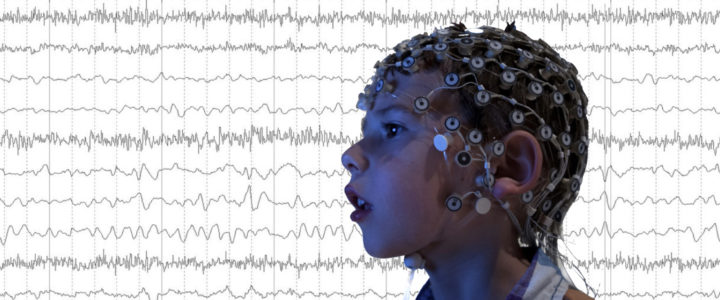
This study from the Wilkinson Lab at Boston Children’s Hospital is investigating how differences in brain activity affect learning, language and behavior in children with Fragile X syndrome, Down syndrome, and Autism Spectrum Disorder. One of the goals is to find brain markers that predict cognitive, language, and behavioral difficulties in these groups. Another goal is to better understand the differences in brain activity between young children with and without Fragile X and Down Syndrome, and whether these differences are similar in children with Autism Spectrum Disorder.
Read moreAltered Physiology of Primary Visual Cortex in Fragile X Syndrome
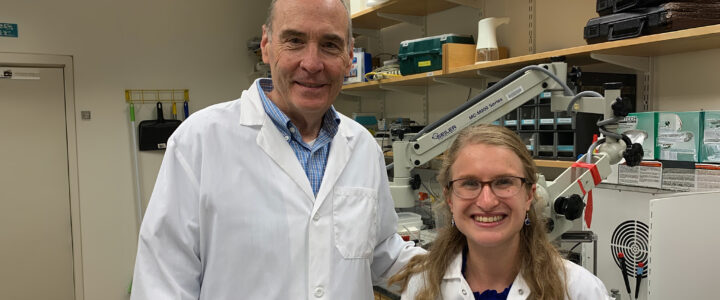
Discover how a $100,000 FRAXA grant supports research at MIT targeting neuron dysfunction in Fragile X, aiming to develop new therapies to improve sensory processing and behavior.
Read moreRecruiting: Clinical Study of Non-Invasive EEG for Children Ages 2-7
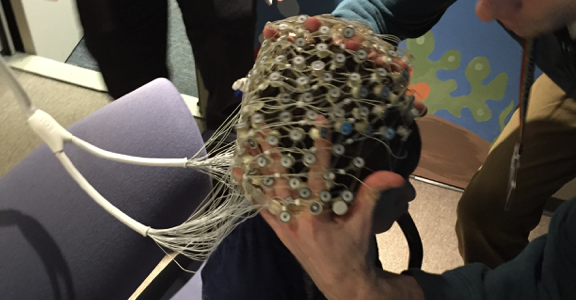
Dr. Carol Wilkinson, MD PhD, and Dr. Charles Nelson, PhD, at Boston Children’s Hospital are recruiting children ages 2-7 years with Fragile X syndrome to participate in a study of brain differences using non-invasive EEG.
Read moreAdvancing Curative Therapy for Fragile X Syndrome: Turner Lab Secures $1M Grant

Fragile X syndrome research accelerates as the Turner Lab secures $1M to expand FRAXA-funded work on curative therapy targeting the missing FMRP protein.
Read moreNeural Markers of Fragile X: A Powerful New Tool for Clinical Trials

Once the neural marker is identified for a particular challenge, such as kids with poor language versus good language, neural markers can be measured during drug and behavioral therapy trials to see if a child is improving based on objective biological measures.
Read moreKimberly Huber, PhD, Explores Hyperexcitability in Fragile X Syndrome
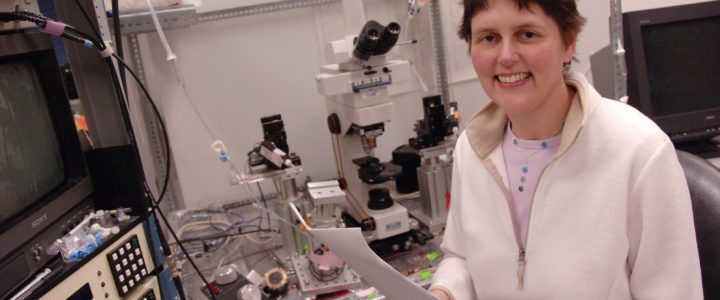
Ever wonder why your child with Fragile X suddenly screams for no apparent reason or jumps and flaps uncontrollably seemingly for hours? You got it: hyperexcitability. But what exactly causes it? And what can fix it? Kimberly Huber, PhD, is working long and hard in her lab to answer those questions. Dr. Huber, professor, Neuroscience, UT Southwestern Medical Center, is seeking to understand how FMRP regulates connections between brain cells, called synapses, and the function of brain circuits, which are several connected brain cells.
Read moreCannabinoids as a Treatment for Fragile X Syndrome

Many people with Fragile X syndrome are hyper-sensitive to sights and sounds, and Electroencephalography (EEG) studies show that there are abnormalities in brain circuits. EEG studies show similar changes in Fragile X mice. So the team will use EEG tests in mice to find which drugs best reduce hypersensitivity. They can then easily move on to human EEG-based clinical trials. What they learn will tell us much more about why people with Fragile X are hypersensitive – and which drugs could best help them.
Read moreUse of EEG as a Biomarker for Diagnosis and Outcomes in Neurodevelopmental Disorders
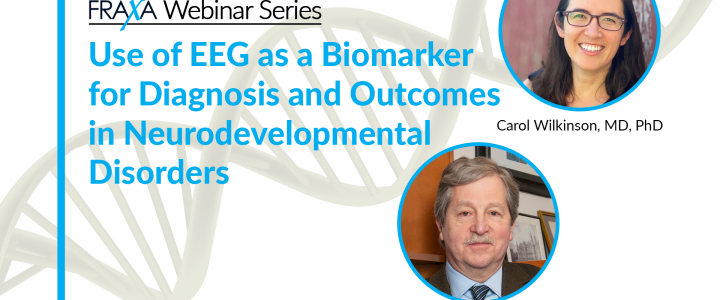
A series webinars focused on current topics in Fragile X research featuring Charles A. Nelson III, PhD, Professor at Harvard Medical School and Carol Wilkinson, MD, PhD, Instructor at Boston Children’s Hospital.
Read moreIdentifying Cellular and Molecular Signatures in Human Neurons That Distinguish Fragile X Syndrome Patients with Divergent EEG Profiles

Why is it so hard to find the right medications to help people with Fragile X syndrome? Just as Fragile X affects individuals differently, medications do as well. This project aims to bring personalized medicine to Fragile X syndrome.
Read moreResults Reported: Using EEG Responses to Sound for Fragile X Drug Discovery

Jonathan Lovelace, a FRAXA funded Postdoc at UC Riverside, has made some exciting EEG findings over the past few years studying auditory hypersensitivity in mice and therapeutic drug treatments. A big obstacle in FXS research has been establishing reliable, unbiased, and translation relevant biomarkers that can be used to determine the effectiveness of therapies. One of the most important discoveries they have made is the striking similarity in EEG biomarkers between mice and humans.
Read moreUnderstanding and Reversing Hypersensitivity to Sounds in Fragile X Syndrome
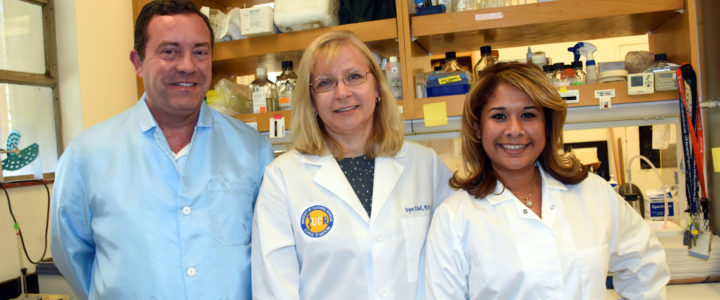
With a $90,000 grant from FRAXA Research Foundation over 2018-2019, Drs. Devin Binder, Iryna Ethell, and Patricia Pirbhoy at the University of California at Riverside aim to understand – and reverse – hypersensitivity to sound in Fragile X syndrome.
Read moreCombinatorial Drug Treatment in a Model of Fragile X Syndrome using Novel Biomarkers

With a $90,000 grant from FRAXA Research Foundation awarded over 2016-2017, University of California researchers Khaleel Razak, PhD, and Jonathan W. Lovelace, PhD, are exploring drug combinations to limit hypersensitivity to sounds in Fragile X mice.
Read morefNIRS to Measure Treatment Response in Young Children with Fragile X
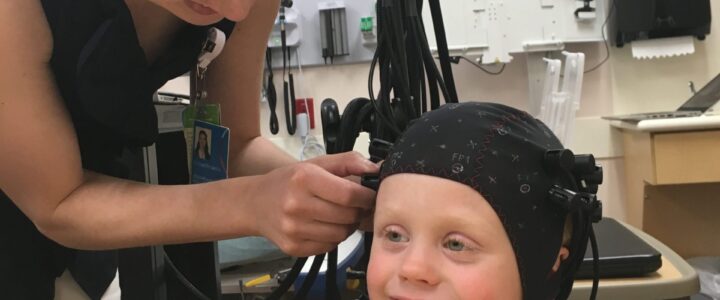
FRAXA Research Foundation has awarded a $90,000 research grant to Dr. Craig Erickson and Dr. Elizabeth Smith at Cincinnati Children’s Hospital to test functional near-infrared spectroscopy (fNIRS), in children who have Fragile X syndrome. fNIRS is safe, non-invasive, and easily-tolerated. It uses light sources and sensors on the scalp to build a heat map of the brain in action.
Read moreIn Their Own Words: Reports From the International Fragile X Workshop

The 18th International Fragile X and Related Neurodevelopmental Disorders Workshop in Quebec, Canada, was a great success, featuring Fragile X much more heavily than any previous meeting in this series! We asked our speakers to summarize their work in their own words, with brief updates from researchers investigating Fragile X.
Read moreAuditory System Dysfunction and Drug Tolerance in the Fragile X Mouse
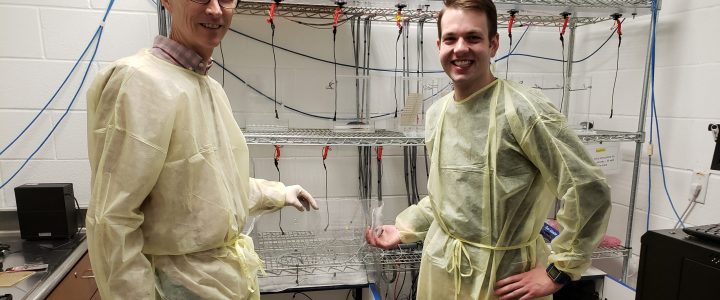
FRAXA Research Foundation has awarded $90,000 over 2019-2021 to principal investigator Dr. Jay Gibson and postdoctoral fellow Dr. Andrew Holley at the University of Texas Southwestern Medical Center. They are investigating circuit mechanisms for auditory system dysfunction and drug tolerance in the Fragile X mouse model.
Read moreOvercoming the Placebo Effect in Fragile X Clinical Trials

In a placebo-controlled clinical trial, some participants are given an experimental medication, while others are given a placebo. Participants do not know whether they are taking medicine or placebo. In theory, this can allow researchers to rule out the placebo effect by comparing outcomes among the two groups. But, per Wexler (2020) “having a strong placebo effect can obscure any real effect of the therapy being investigated”.
Read moreFinding Fragile X Biomarkers – From Transcriptomics to Behavior in Patients

With this $20,000 award from FRAXA Research Foundation, Dr. Vanderklish and collaborators at Scripps Research Institute, the University of Chile, and the FLENI Institute in Argentina are analyzing patterns in gene expression in blood cells of patients with Fragile X syndrome. They are using “transcriptomics” which can produce a time-sensitive signature of an individual person. This is the first time that all these different levels of study – from transcriptomics to behavior – have been done for individual patients with Fragile X.
Read moreMechanisms and Biomarkers of Sensory Hypersensitivity in the fmr1 Knockout Mouse
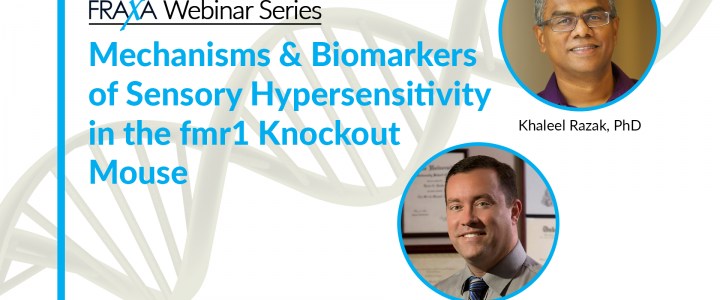
In this Fragile X research webinar we hear from Devin K. Binder, MD, PhD, Professor, University of California at Riverside Medical School and Khaleel Razak, PhD, Professor, University of California at Riverside as they present about Mechanisms and Biomarkers of Sensory Hypersensitivity in the fmr1 Knockout Mouse.
Read moreFRAXA Funded Researchers Present at MA Fragile X Conference

On Saturday Boston Children’s Hospital (BCH) hosted a Fragile X educational conference. Success Strategies for Individuals and Families Impacted by Fragile X and two of our funded researchers, Dr. Craig Erickson, and Carol Wilkinson, MD, PhD, presented giving an update on their current Fragile X clinical trials. Both being funded by FRAXA.
Read moreGene Therapy Translational Studies for Fragile X Syndrome

With this $90,000 award from FRAXA Research Foundation, Drs. Ernest Pedapati, Christina Gross, and student Lindsay Beasley will pursue preclinical gene therapy approaches using AAV (adeno-associated virus) vectors for treating Fragile X syndrome at Cincinnati Children’s Hospital. Dr. Craig Erickson elaborates about this in this video.
Read moreInterrogate the Functions of FMRP in Brain Development Using Stem Cells

Dr. Xinyu Zhao of the Waisman Center and Department of Neuroscience at University of Wisconsin-Madison joins us in this seminar to present Interrogate the Functions of FMRP in Brain Development Using Stem Cells.
Read moreBrain Imbalance Target of Dr. Erickson’s New Clinical Trial

According to Dr. Erickson, AZD7325 is a drug that selectively boosts GABA neurotransmission in the brain. GABA is the primary neurochemical in the brain that blocks brain activation. GABA activity is in balance in the brain with Glutamate activity, which is the primary neurochemical that causes brain activation. In Fragile X, GABA activity is insufficient and glutamate activity is excessive, likely causing brain activity to be out of balance. AZD7325 attempts to correct parts of this imbalance by boosting the insufficient GABA activity in the brains of people with Fragile X.
Read moreValidating Novel Inhibitors of ERK Signalling to Treat Fragile X Syndrome

One promising treatment approach for Fragile X syndrome is to inhibit on a neuronal pathway, ERK. ERK inhibitors are also being studied as treatments for other disorders including autism.
This team has conducted pilot studies showing that ERK inhibitors are very effective in reversing signs of disease in Fragile X mice. With this grant from FRAXA they will take the next steps toward possible clinical trials of an ERK inhibitor for individuals who have Fragile X syndrome.

